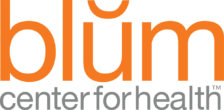No. Anyone can register for a single class or class series. Occasionally, there is a pre-requisite for a particular class; in that case, it will be listed in the class description. Registration can be done online, but please call us if you need assistance.
Uncategorized
Do I need to be a member of The Blum Center for Health to sign up for a cooking class?
No. Anyone can take one of our cooking classes.
How do I know which Nutrition in the Kitchen class is most appropriate for me?
Our classes are designed to accommodate the most common health concerns. When you see Dr. Blum, Elizabeth, or one of our nutritionists, they will suggest the class or classes that are most relevant to your treatment plan or needs. You can also consult our concierge for help finding one that best suits you. Our website offers comprehensive descriptions of each Nutrition in the Kitchen class, which range from more nutrition-focused to those that teach culinary techniques and skills, along with a key that tells you if it’s gluten free (G), low inflammation (I), low sugar (S) or dairy free (D).
Why doesn’t my regular doctor do the same tests you do at the Center?
Most traditional doctors don’t do this testing because they don’t have the experience or training or are too busy or skeptical to invest the time to learn.
What kind of laboratory testing do you do and is it covered by insurance?
Typically, any blood work that is requested from a lab that’s on your insurance plan is covered. However, you may also take Functional Medicine tests, which include urine, stool or saliva kits that you take home, and/or have blood drawn at the Center and generally these things are not covered by insurance. Prices vary depending on which test you take and reimbursement depends on your insurance.
What kind of insurance do you take?
While The Blum Center for Health doesn’t accept insurance, we are happy to provide you with the appropriate documentation and properly coded forms for you to submit to your insurance company. Most patients with out-of-network benefits, who satisfy their deductible, are reimbursed.
What are your office hours?
The Center is open Monday through Thursday from 9 am to 5 pm and Friday from 9 am to 3 pm. On Saturdays, we’ll be open for special workshops.
What happens during a visit to a Clinical Nutritionist?
During your initial visit, which will last from 1 to 1.5 hours, the clinical nutritionist will ask you questions about your medical history, family history and personal lifestyle. She will also review any recent blood work (so bring this with you), a one-day food diary that you should keep prior to your appointment and any herbs, supplements or medicines that you take regularly (so please make a list of these or bring the actual bottles with you). This will provide a full picture of your nutritional lifestyle that will help her create your nutritional program.
Will there be a conflict between The Blum Center of Health and my primary care or other specialty doctor if I’m on medication?
Dr. Blum and Elizabeth have an integrative approach to practicing medicine. The treatment plans they create combine Western medical practices, such as prescription medications, with what are sometimes considered “alternative” or “integrative” approaches like nutrition, supplements and stress-management techniques. As a result, Dr. Blum and Elizabeth understand the medications you are on and can work with you as a complement to your current medical regimen. That said, if you are interested in getting off some or all of your current medications, Dr. Blum and Elizabeth will work with your prescribing doctor toward this goal. They will never change your existing medication; your prescribing doctor will change it if he/she sees you don’t need it anymore. For example, as you and Dr. Blum or Elizabeth work towards lowering your cholesterol, your levels will drop lower and lower on lab testing. Then, you (or Dr. Blum/Elizabeth) can talk to your doctor about reducing your cholesterol-lowering medication.
How many times should I expect to visit The Blum Center for Health?
After the second visit, you can expect to come back in one month to review your progress on the program. This and future visits should last no more than one hour. At this point, your individual medical condition and program will determine the frequency or need for follow up visits.
